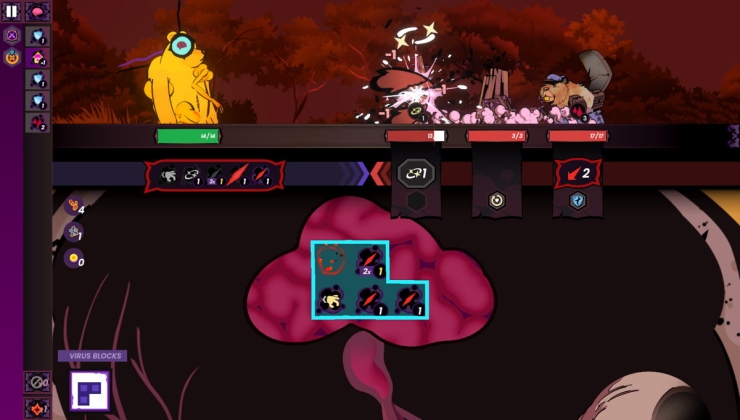According to new Steam documents, Valve will be launching Steam Cloud Gaming soon with a Beta of Steam Cloud Play.
It will require developers to opt in, and they're required to support Cloud Saves (or another online save method), otherwise gamers will lose their data. Developers will continue to be paid the same way, since users still need to buy the games on Steam.
Before you get too excited though, the documents say the first service connecting with it will be NVIDIA GeForce NOW. For Linux gamers then, it means next to nothing since NVIDIA have been silent on any plans for Linux support with it. However, it's clearly early on and Valve are still building features and adding to their server capacity.
In the FAQ it does state this:
Will there be other cloud gaming services added to Steam Cloud Play?
We may add additional Steam Cloud Gaming services in the future. At that time we would reach out to you to opt your games into the new service.
Quite disappointing for us here of course. We're still somewhat expecting once Valve has tested the waters with this, and built up all the mechanics around Steam to support all of it, that they would launch their own. Don't think Valve would stay reliant on an external service for too long. The curious part is in the "How to sign up" part, which mentions how developers opting into Steam Cloud Gaming will have it "hosted by Valve" with service providers (like NVIDIA) being the additional. So that perhaps lends some credit towards a Valve service.
If we hear any more on it and / or they announced something that works with Linux, we will let you know.
Quoting: mylkai dont get it why nvidia has a client for STREAMINGSomething about controlling the client?
why isnt it like stadia with a browser... should be way less maintaining
For Stadia, Chrome is Google's client and they control 100% of it. Nvidia couldn't say the same if they used any known browser, so they created an equivalent Nvidia, Windows only "browser", dedicated to streaming.
Just a guess, I might be wrong.
Last edited by Mohandevir on 28 May 2020 at 8:00 pm UTC
Quoting: Mohandevirthey control the content of the website.... what else do they need to control?Quoting: mylkai dont get it why nvidia has a client for STREAMINGSomething about controlling the client?
why isnt it like stadia with a browser... should be way less maintaining
For Stadia, Chrome is Google's client and they control 100% of it. Nvidia couldn't say the same if they used any known browser, so they created an equivalent Nvidia, Windows only "browser", dedicated to streaming.
Just a guess, I might be wrong.
Blacklist them all.
Quoting: Liam DaweBefore you get too excited though, the documents say the first service connecting with it will be NVIDIA GeForce NOW. For Linux gamers then, it means next to nothing since NVIDIA have been silent on any plans for Linux support with it.I can't really imagine Steam simply launching the Geforce Now Executable. Geforce Now will provide an API that Steam will use. The streaming frontend has to run through the Steam client, otherwise it won't integrate properly and will only cause problems. Why would anyone use that, when you can also start the Geforce Now directly?
Last edited by 1xok on 29 May 2020 at 8:54 am UTC
Quoting: 1xokIt is curious for sure, however, Steam has at multiple times launched features that don't work and don't exist in the Linux client. Remember Broadcasting? :PQuoting: Liam DaweBefore you get too excited though, the documents say the first service connecting with it will be NVIDIA GeForce NOW. For Linux gamers then, it means next to nothing since NVIDIA have been silent on any plans for Linux support with it.I can't really imagine Steam simply launching the Geforce Now Executable. Geforce Now will provide an API that Steam will use. The streaming frontend has to run through the Steam client, otherwise it won't integrate properly and will only cause problems. Why would anyone use that, when you can also start the Geforce Now directly?
Quoting: mylkaHow the client is behaving? Preventing breakage or degradation from a Google Chrome update? Or just because they want to control it? It's probably the same philosophy as to why there is no open source Nvidia driver, imo.Quoting: Mohandevirthey control the content of the website.... what else do they need to control?Quoting: mylkai dont get it why nvidia has a client for STREAMINGSomething about controlling the client?
why isnt it like stadia with a browser... should be way less maintaining
For Stadia, Chrome is Google's client and they control 100% of it. Nvidia couldn't say the same if they used any known browser, so they created an equivalent Nvidia, Windows only "browser", dedicated to streaming.
Just a guess, I might be wrong.
Quoting: drlambHowever unlikely I'd die if Google (Stadia) and Valve formed a partnership.that wont happen.
the main issue with stadia is that games need to be ported to linux and vulkan to work on it, the cost of doing that is too high, but since google will earn something like 30% of the every game purchased on stadia, they can take this cost on then to make some profit later on.
that is totally contrary to geforce now, who stream games from an windows machine and as result, it can operate at the cost of streaming charging only an montly signature to use the service.
in theory it dont matter what runs on the service as long as it can stream to linux, but for some reason geForce now isnt avaliable for linux...
Quoting: mylkai dont get it why nvidia has a client for STREAMINGbecause they dont have an browser?
why isnt it like stadia with a browser... should be way less maintaining
they wont launch one just for that, hell chrome is currently the only browser with support for that, wich means they arent using any standard codec for that, but an custom made one..
in other words, they would have to make an browser instead of support the ones we already have.
and by that point, its easier to make an client, well, the client might as well be just an electron app with an deeply integrated extension to support their proprietary codec.
Quoting: TheRiddickWe need to build a list of developers and publishers who don't allow cloud gaming with your existing bought copies of games...people (who dont care about linux) are already doing that, and as for us, it would only backfire against us, since GFN dont support linux anyway...
Blacklist them all.
Quoting: PatolaBeing bound by law not to do certain things with a possession doesn't mean you don't own it and certainly has nothing to do with licensing since you're bound by law, not by the license. If you own a gun, depending where you live you may bound by law to store it in certain ways, put it in a locked case when transporting it, and of course not shoot people with it. Perhaps more to the point, if I own a physical book I am bound by the exact same law not to print multiple copies; it comes up less often because it's harder to do and doesn't usually occur to people, but it applies. Yet nobody goes around saying you don't own books you buy in the bookstore. I'd actually say that it is practically impossible to own something and not have its use circumscribed by law in some way.Quoting: NarcotixOwning the game or not has nothing to do with DRM. Every game you have is licensed, not owned. You can't do whatever you want with them, for starters you're bound by law to keep them artificially scarse (can't copy more than a quota for personal use and can't copy it to others).Quoting: Patola[...]We already do not own our games, we license them. [...]I am reading this so often lately. But did you already look up how many games on Steam you DO own?
There's quite a huge list of DRM-free games on Steam. https://steam.fandom.com/wiki/List_of_DRM-free_games
Also quite some big titles on this list.
As to the actual licensing, sure, the game companies try stuff on. But basically, if you buy a game, you own it. Where its licensing conflicts with the law of the state you live in concerning ownership, that licensing can be, and sometimes has been, struck down in court. I strongly suspect this doctrine does not apply to things like Stadia, though.
Last edited by Purple Library Guy on 1 Jun 2020 at 4:04 pm UTC
(Sorry for the bump, but I just noticed this on the EA sale page.)











 How to setup OpenMW for modern Morrowind on Linux / SteamOS and Steam Deck
How to setup OpenMW for modern Morrowind on Linux / SteamOS and Steam Deck How to install Hollow Knight: Silksong mods on Linux, SteamOS and Steam Deck
How to install Hollow Knight: Silksong mods on Linux, SteamOS and Steam Deck